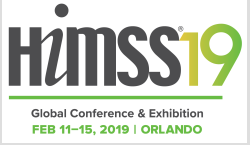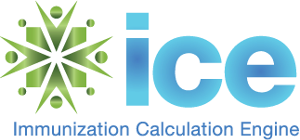 On January 18, 2022 the Office of the National Coordinator for Health Information Technology (ONC) finally released version 1 of the Trusted Exchange Framework, Common Agreement and the QHIN (Qualified Health Information Network) Technical Framework (QTF). Several years in the making, these documents represent the latest attempt at initiating a national health information exchange in the United States. This project is being managed by ONC’s Recognized Coordinating Entity (RCE), The Sequoia Project, and was inspired by both the HITECH Act and 21st Century Cures Act.
On January 18, 2022 the Office of the National Coordinator for Health Information Technology (ONC) finally released version 1 of the Trusted Exchange Framework, Common Agreement and the QHIN (Qualified Health Information Network) Technical Framework (QTF). Several years in the making, these documents represent the latest attempt at initiating a national health information exchange in the United States. This project is being managed by ONC’s Recognized Coordinating Entity (RCE), The Sequoia Project, and was inspired by both the HITECH Act and 21st Century Cures Act.
HLN Consulting
See the following -
ONC Finally Releases TEFCA—What it Might Mean to Public Health
- Login to post comments
ONC HITAC Public Health Data Systems Task Force Releases Recommendations
 On November 10, 2022 the Office of the National Coordinator for Health Information Technology’s (ONC) Health Information Technology Advisory Committee (HITAC) accepted and approved the recommendations of its ad hoc Public Health Data Systems Task Force. As discussed in an earlier post, the Task Force has been meeting since August 2022 and was charged with examining how improvements might be made in ONC certification rules for criteria related to public health data submission. In addition, and perhaps for the first time, the task force was also charged with developing recommendations related to the public health side of the equation: how public health data systems and/or standards might improve to ensure a smoother flow of information with clinical care. Read More »
On November 10, 2022 the Office of the National Coordinator for Health Information Technology’s (ONC) Health Information Technology Advisory Committee (HITAC) accepted and approved the recommendations of its ad hoc Public Health Data Systems Task Force. As discussed in an earlier post, the Task Force has been meeting since August 2022 and was charged with examining how improvements might be made in ONC certification rules for criteria related to public health data submission. In addition, and perhaps for the first time, the task force was also charged with developing recommendations related to the public health side of the equation: how public health data systems and/or standards might improve to ensure a smoother flow of information with clinical care. Read More »
- Login to post comments
ONC HTI-1 NPRM Through Public Health Eyes
 On April 18, 2023, the Office of the National Coordinator for Health Information Technology (ONC) published for comment the Health Data, Technology, and Interoperability: Certification Program Updates, Algorithm Transparency, and Information Sharing (HTI-1) Proposed Rule which proposes new provisions from the 21st Century Cures Act and makes updates to the ONC Health IT Certification Program (Certification Program). Weighing in at over 500 pages (the pre-release version), this proposed rule provides some refinements to existing ONC programs, corrections to others, and extensions to yet other provisions. ONC provides additional materials about this proposed rule, including fact sheets, blog posts, and records from topical webinars on their website. Note especially the information provided about a joint ONC-CDC sponsored informational webinar which took place on May 24, 2023, and is available for playback on the site.
On April 18, 2023, the Office of the National Coordinator for Health Information Technology (ONC) published for comment the Health Data, Technology, and Interoperability: Certification Program Updates, Algorithm Transparency, and Information Sharing (HTI-1) Proposed Rule which proposes new provisions from the 21st Century Cures Act and makes updates to the ONC Health IT Certification Program (Certification Program). Weighing in at over 500 pages (the pre-release version), this proposed rule provides some refinements to existing ONC programs, corrections to others, and extensions to yet other provisions. ONC provides additional materials about this proposed rule, including fact sheets, blog posts, and records from topical webinars on their website. Note especially the information provided about a joint ONC-CDC sponsored informational webinar which took place on May 24, 2023, and is available for playback on the site.
- Login to post comments
ONC Releases Several New Specifications in 2022
 The Office of the National Coordinator for Health Information Technology (ONC) started off the new year by releasing several new specifications supporting health information interoperability...On January 3, 2022 ONC released the Version 3 Draft of the US Core Data for Interoperability (USCDI) which defines a core set of data for common interoperability transactions in healthcare. It defines classes of data as well as specific data elements within those classes and represents the data that can be expected to be shared at minimum between data partners. While public health is included, ONC has recently recognized that public health use cases (and therefore their data needs) differ from clinical care use cases...
The Office of the National Coordinator for Health Information Technology (ONC) started off the new year by releasing several new specifications supporting health information interoperability...On January 3, 2022 ONC released the Version 3 Draft of the US Core Data for Interoperability (USCDI) which defines a core set of data for common interoperability transactions in healthcare. It defines classes of data as well as specific data elements within those classes and represents the data that can be expected to be shared at minimum between data partners. While public health is included, ONC has recently recognized that public health use cases (and therefore their data needs) differ from clinical care use cases...
- Login to post comments
ONC Tech Forum 2020—An Attendee's Perspective
 I attended the ONC summer Tech Forum in August 2020 which brought together over 1,500 industry experts and Federal partners to discuss technical innovations in health information technology and their potential impacts on the healthcare ecosystem...One of the most interesting parts of the conversation was focused on the efforts made by Honk Kong to develop an open source digital health platform. Over the past 20+ years, Hong Kong has been pursuing a "one system, one record" policy primarily built on open source components. Though they had little money to invest at the beginning, for them open source is more about retaining control than about controlling cost (though the lower price tag certainly got them started down this path)...
I attended the ONC summer Tech Forum in August 2020 which brought together over 1,500 industry experts and Federal partners to discuss technical innovations in health information technology and their potential impacts on the healthcare ecosystem...One of the most interesting parts of the conversation was focused on the efforts made by Honk Kong to develop an open source digital health platform. Over the past 20+ years, Hong Kong has been pursuing a "one system, one record" policy primarily built on open source components. Though they had little money to invest at the beginning, for them open source is more about retaining control than about controlling cost (though the lower price tag certainly got them started down this path)...
- Login to post comments
Open Health Guide to HIMSS19
 The annual gargantuan HIMSS conference is back in Orlando with over 45,000 participants from more than 90 countries. There will be more than 1,300 vendors at the exhibit floor and more than 300 educational sessions. As with the last several conferences, the focus on open source as the key underlying technologies of health information technologies continues to increase. In previous conferences, we have seen the rise of open source technologies, in particular, those related to interoperability such as FHIR and Blockchain. A large number of sessions at HIMSS19 will be focused on another set of technologies powered largely by open source software and design principles such as artificial intelligence (AI), machine learning, and natural language processing.
The annual gargantuan HIMSS conference is back in Orlando with over 45,000 participants from more than 90 countries. There will be more than 1,300 vendors at the exhibit floor and more than 300 educational sessions. As with the last several conferences, the focus on open source as the key underlying technologies of health information technologies continues to increase. In previous conferences, we have seen the rise of open source technologies, in particular, those related to interoperability such as FHIR and Blockchain. A large number of sessions at HIMSS19 will be focused on another set of technologies powered largely by open source software and design principles such as artificial intelligence (AI), machine learning, and natural language processing.
- The Future Is Open
- Login to post comments
Open Source Immunization Forecaster Updated to Support Pfizer COVID Vaccine
 On December 15, 2020, HLN released a new version (v1.26.2) of the Immunization Calculation Engine (ICE) in support of the Pfizer COVID vaccine. ICE is a state-of-the-art open source software system that provides clinical decision support for immunizations for use in Immunization Information Systems (IIS), Electronic Health Record (EHR), and Personal Health Record (PHR) Systems. Version 1.26.2 includes support for new COVID-19 Vaccine Group (with the Pfizer vaccine only). A subsequent release, coming soon, will likely add support for the Moderna vaccine. Read More »
On December 15, 2020, HLN released a new version (v1.26.2) of the Immunization Calculation Engine (ICE) in support of the Pfizer COVID vaccine. ICE is a state-of-the-art open source software system that provides clinical decision support for immunizations for use in Immunization Information Systems (IIS), Electronic Health Record (EHR), and Personal Health Record (PHR) Systems. Version 1.26.2 includes support for new COVID-19 Vaccine Group (with the Pfizer vaccine only). A subsequent release, coming soon, will likely add support for the Moderna vaccine. Read More »
- Login to post comments
Open Source in the Worldwide COVID-19 Response
 February marks the celebration of creation of the Open Source Initiative (OSI) in 1998. OSI created the standard definition of the term Open Source that helped guide many of LPI's initiatives today. Through the past year, open source provided many opportunities to organizations to continue to work, implement their projects, and continue reaching out to communities. Here are just a few examples of how open source provides opportunities through the face of COVID-19. The COVID-19 crisis brought out all the creativity of the open source movement. In every area of innovation--open source software, open data, open collaboration, and even open equipment--companies and research institutes have addressed medical and public health needs quickly. This article highlights some of the initiatives in each area.
February marks the celebration of creation of the Open Source Initiative (OSI) in 1998. OSI created the standard definition of the term Open Source that helped guide many of LPI's initiatives today. Through the past year, open source provided many opportunities to organizations to continue to work, implement their projects, and continue reaching out to communities. Here are just a few examples of how open source provides opportunities through the face of COVID-19. The COVID-19 crisis brought out all the creativity of the open source movement. In every area of innovation--open source software, open data, open collaboration, and even open equipment--companies and research institutes have addressed medical and public health needs quickly. This article highlights some of the initiatives in each area.
- Login to post comments
Open Source Solutions For Public Health Case Reporting and COVID-19
 The United States is continuing its slow emergence from a nation-wide shut down imposed to slow down the spread of COVID-19. Most states have started to reopen, with bars, restaurants, and many workplaces starting to fill. As people begin to spend more time together again, it is critically important that public health agencies do everything they can to help prevent further spread of the infection and continue to monitor the level of infection within the population. Data is an important tool that public health has to understand what is going on in the country. Years of limited government investment and neglect of current systems has limited public health's ability to meet the challenges of managing both localized outbreaks and pandemics.
The United States is continuing its slow emergence from a nation-wide shut down imposed to slow down the spread of COVID-19. Most states have started to reopen, with bars, restaurants, and many workplaces starting to fill. As people begin to spend more time together again, it is critically important that public health agencies do everything they can to help prevent further spread of the infection and continue to monitor the level of infection within the population. Data is an important tool that public health has to understand what is going on in the country. Years of limited government investment and neglect of current systems has limited public health's ability to meet the challenges of managing both localized outbreaks and pandemics.
- Login to post comments
So I Survived HIMSS19…
 This was perhaps more of a fete than it initially seems. The conference was massive, with over 40,000 attendees. It centered around a trade show exhibit hall that spanned multiple football fields in length. In some ways, it was so big that I felt somewhat discouraged from attending some educational sessions because they were located so far from where I was hanging out that I could get back and forth in time. So I spent most of my time at the Interoperability Showcase since HLN was participating in two of the use cases: Immunization Integration & CDS, featuring our ICE open source immunization evaluation and forecasting system...
This was perhaps more of a fete than it initially seems. The conference was massive, with over 40,000 attendees. It centered around a trade show exhibit hall that spanned multiple football fields in length. In some ways, it was so big that I felt somewhat discouraged from attending some educational sessions because they were located so far from where I was hanging out that I could get back and forth in time. So I spent most of my time at the Interoperability Showcase since HLN was participating in two of the use cases: Immunization Integration & CDS, featuring our ICE open source immunization evaluation and forecasting system...
- Login to post comments
Some Barriers and Challenges to the CDC's Data Modernization Initiative
 As we have discussed in earlier posts, the Centers for Disease Control and Prevention (CDC) has launched a Data Modernization Initiative (DMI) focused on improving the data management capacity of public health in the United States. The major focus of this initiative is on investments in both people as well as systems and data to improve public health response. Though Congress has appropriated a significant amount of funding for Federal and state, territorial, local, and tribal (STLT) public health agencies, there are some sizable barriers and challenges to seeing the vision for DMI come to fruition:
As we have discussed in earlier posts, the Centers for Disease Control and Prevention (CDC) has launched a Data Modernization Initiative (DMI) focused on improving the data management capacity of public health in the United States. The major focus of this initiative is on investments in both people as well as systems and data to improve public health response. Though Congress has appropriated a significant amount of funding for Federal and state, territorial, local, and tribal (STLT) public health agencies, there are some sizable barriers and challenges to seeing the vision for DMI come to fruition:
- Login to post comments
The Changing Face of Public Health System Procurement
 The development and acquisition of public health systems is poised to change. Historically, public health agencies had the classic choice when it came to acquiring a new data system. Either they developed the system themselves – usually based on a belief that their requirements were “unique” – or they licensed a COTS/GOTS product from the limited choices available in a small market. Typically, agencies that chose to develop solutions were forced to use a waterfall approach as government procurement is not well suited to the flexibility of Agile systems development. Some agencies have been able to leverage open source offerings. While most do not have the wherewithal to support open source products themselves, many have formed strong partnerships with other organizations, both for-profit and nonprofit, to take advantage of these systems.
The development and acquisition of public health systems is poised to change. Historically, public health agencies had the classic choice when it came to acquiring a new data system. Either they developed the system themselves – usually based on a belief that their requirements were “unique” – or they licensed a COTS/GOTS product from the limited choices available in a small market. Typically, agencies that chose to develop solutions were forced to use a waterfall approach as government procurement is not well suited to the flexibility of Agile systems development. Some agencies have been able to leverage open source offerings. While most do not have the wherewithal to support open source products themselves, many have formed strong partnerships with other organizations, both for-profit and nonprofit, to take advantage of these systems.
- Login to post comments
The Sequoia Project Releases a Useful Workgroup Report on Information and Pandemic Response
 In February 2022 the Sequoia Project released its Emergency Preparedness Information Workgroup’s Pandemic Response Insights and Recommendations. This workgroup was convened in the fall of 2020 at the height of the pandemic with a diverse set of stakeholders from all areas of the healthcare system. The resulting short report is worth a read as it offers concise analysis and recommendations. The first task the workgroup undertook was to conduct a SWOT (strengths, weaknesses, opportunities, threats) analysis focused on pandemic response. There was a strong public health focus that resulted from this activity: “During a declared emergency, and during non-emergency times as well, public health should be viewed as a collaborator and partner with equal access to shared data” (p. 6).
In February 2022 the Sequoia Project released its Emergency Preparedness Information Workgroup’s Pandemic Response Insights and Recommendations. This workgroup was convened in the fall of 2020 at the height of the pandemic with a diverse set of stakeholders from all areas of the healthcare system. The resulting short report is worth a read as it offers concise analysis and recommendations. The first task the workgroup undertook was to conduct a SWOT (strengths, weaknesses, opportunities, threats) analysis focused on pandemic response. There was a strong public health focus that resulted from this activity: “During a declared emergency, and during non-emergency times as well, public health should be viewed as a collaborator and partner with equal access to shared data” (p. 6).
- Login to post comments
Two New Federal Reports Released That Have Major Public Health Impacts
 Two new Federal reports were recently released that have a public health impact. First, the Office of the National Coordinator for Health Information Technology (ONC) released its 2022 Report to Congress: Update on Access, Exchange, and Use of Electronic Health Information. This report covers the current state of adoption of health information technology and access to electronic health information guided largely by the requirements of the 2016 21st Century Cures Act. The report observes that, “Although tremendous progress has been made with EHRs that capture and support the use of health information about individuals, the COVID-19 pandemic exposed gaps in health IT systems that support capturing and using population data. The challenges exposed during the public health response to the COVID-19 pandemic pinpointed the importance of health IT to monitor population health regarding public health surveillance of testing, diagnosis, and vaccine distribution.”
Two new Federal reports were recently released that have a public health impact. First, the Office of the National Coordinator for Health Information Technology (ONC) released its 2022 Report to Congress: Update on Access, Exchange, and Use of Electronic Health Information. This report covers the current state of adoption of health information technology and access to electronic health information guided largely by the requirements of the 2016 21st Century Cures Act. The report observes that, “Although tremendous progress has been made with EHRs that capture and support the use of health information about individuals, the COVID-19 pandemic exposed gaps in health IT systems that support capturing and using population data. The challenges exposed during the public health response to the COVID-19 pandemic pinpointed the importance of health IT to monitor population health regarding public health surveillance of testing, diagnosis, and vaccine distribution.”
- Login to post comments
